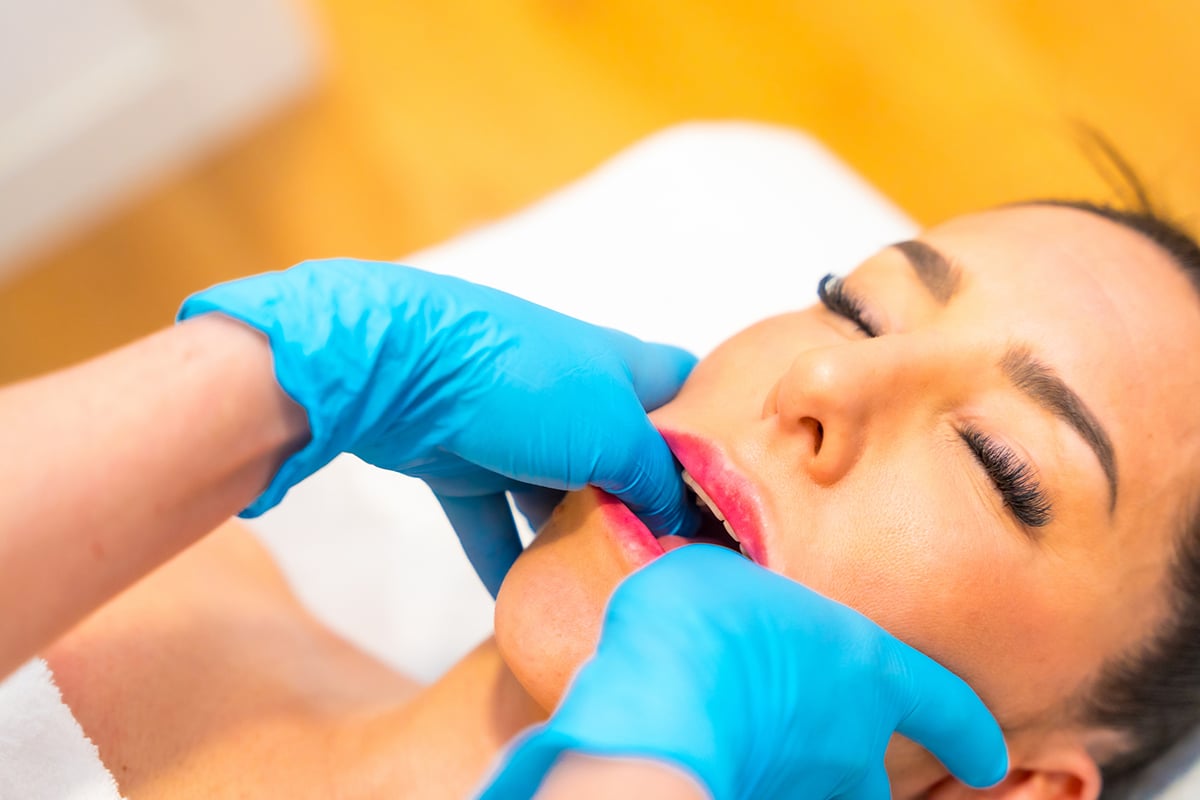
Temporomandibular joint disorders, commonly known as TMJ, affect millions of people worldwide. This condition involves the joints that connect your jaw to your skull, which are located in front of each ear. These joints allow you to move your jaw up and down and side to side, enabling you to talk, chew, and yawn. TMJ disorders can cause a range of symptoms, from mild discomfort to severe pain, impacting your daily life.
What Are the Symptoms of TMJ?
Identifying TMJ can be challenging due to the variety of symptoms it presents. Common signs include:
- Jaw Pain or Tenderness. Many TMJ sufferers experience pain or soreness in the jaw area, which may extend to the face, neck, and shoulders. This pain can be intermittent or constant.
- Difficulty Chewing or Talking. TMJ can make everyday activities like chewing or speaking difficult and uncomfortable. You might notice a clicking or popping sound when you open or close your mouth.
- Headaches and Earaches. Frequent headaches or earaches, especially in the morning, could be linked to TMJ. These symptoms often result from muscle strain and inflammation around the temporomandibular joint.
Causes of TMJ
TMJ disorders can arise from various factors, often making it difficult to pinpoint a single cause. Some common contributors include:
- Dental Issues. Problems like misaligned teeth or an improper bite can strain the jaw muscles and joints, leading to TMJ.
- Injury. Trauma to the jaw, head, or neck can damage the temporomandibular joints and surrounding muscles, causing TMJ.
- Lifestyle Factors. Stress, poor posture, and habits such as teeth grinding or nail-biting can exacerbate TMJ symptoms.
How Is TMJ Diagnosed?
Diagnosing TMJ typically involves a thorough examination by a healthcare professional. Common diagnostic procedures include:
- Physical Examination. Your doctor or dentist will assess your jaw’s range of motion, listen for sounds, and feel for tenderness or swelling in the joint area.
- Imaging Tests. X-rays, MRI scans, or CT scans can provide detailed images of your jaw and surrounding structures, helping to identify any abnormalities or damage.
- Patient History. Providing a comprehensive history of your symptoms, medical conditions, and lifestyle habits can help your healthcare provider make an accurate diagnosis.
Treatment Options for TMJ
Several treatment options are available for managing TMJ, ranging from simple home remedies to professional care:
- Home Remedies. Applying ice packs, practicing jaw exercises, and using over-the-counter pain relievers can help alleviate mild symptoms.
- Professional Treatments. For more severe cases, your dentist or doctor might recommend physical therapy, oral splints, or medications such as muscle relaxants or anti-inflammatories.
- Surgical Options. In rare cases, when other treatments fail to provide relief, surgical procedures like arthrocentesis or open-joint surgery may be necessary.
Practical Tips for Managing TMJ
Living with TMJ can be challenging, but several strategies can help manage symptoms in daily life:
- Maintain Good Posture. Keeping your head aligned with your spine can reduce strain on your jaw and neck muscles.
- Avoid Hard and Chewy Foods. Stick to a soft diet to minimize stress on your jaw joints.
- Practice Stress-Reduction Techniques. Incorporating relaxation exercises, such as deep breathing or meditation, can help reduce muscle tension and alleviate TMJ symptoms.
Frequently Asked Questions about TMJ
What Can I Do to Relieve TMJ Pain at Home?
You can apply ice or heat packs, practice gentle jaw exercises, and take over-the-counter pain relievers. Avoiding hard and chewy foods and practicing good posture can also help reduce TMJ pain.
How Long Does It Take for TMJ to Heal?
The healing time for TMJ varies depending on the severity of the condition and the treatments used. With proper care and management, many people experience significant relief within a few weeks to months.
TMJ Treatment Stuart Prosthetic Dentistry
If you suspect you might have TMJ, seeking professional advice is crucial. Early diagnosis and treatment can help manage symptoms and prevent complications. Call 772.286.1606 or contact us today to learn more and schedule an appointment.
